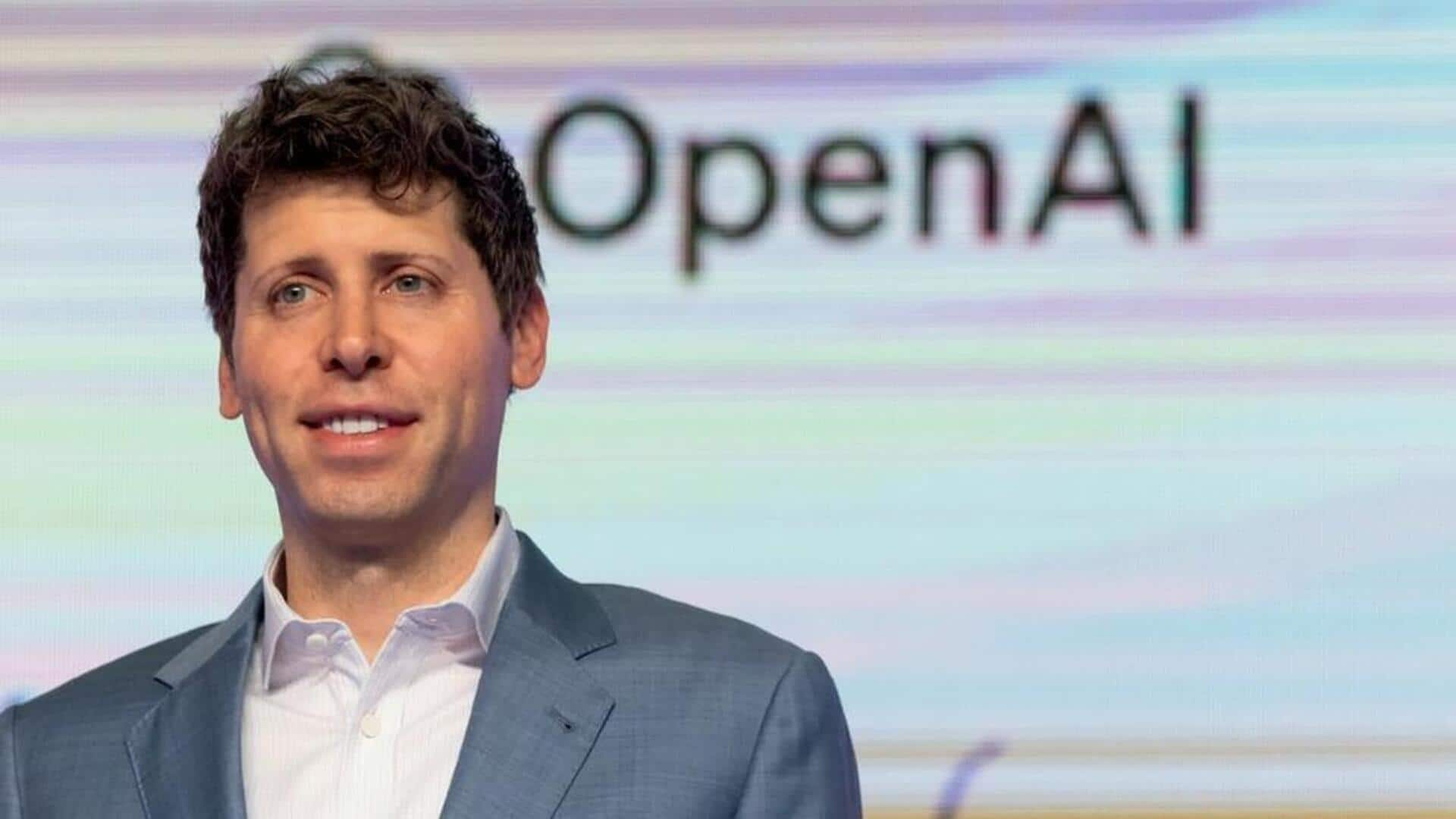
AI that can generate novel ideas arriving next year: Altman
What's the story
In a recent essay titled "The Gentle Singularity," OpenAI CEO Sam Altman has shared his vision of how artificial intelligence (AI) will shape human experience over the next 15 years. The essay highlights the potential of artificial general intelligence (AGI) and hints at OpenAI's future plans. Notably, Altman predicts that by 2026, we could see AI systems capable of generating "novel insights."
Strategic shift
Altman's prediction based on o3 and o4-mini models
Altman's prediction aligns with OpenAI's recent developments in AI reasoning models, o3 and o4-mini. These were among the first models used by scientists to generate new, helpful ideas. "2025 has seen the arrival of agents that can do real cognitive work; writing computer code will never be the same," wrote Altman. "2026 will likely see the arrival of systems that can figure out novel insights. 2027 may see the arrival of robots that can do tasks in the real world."
Industry trend
Competitors like Google are also working on similar AI models
OpenAI isn't the only company chasing this goal. Several of its competitors have also shifted their focus toward training AI models that can help scientists generate new hypotheses and discoveries. In May, Google published a paper on AlphaEvolve, an AI coding agent that has allegedly generated novel approaches to complex math problems.
Future prospects
AI systems could automate parts of scientific research
The successful development of AI systems capable of generating novel insights could revolutionize scientific research. It could automate a key part of the scientific process and open up massive industries such as drug discovery and material science. However, there are still doubts within the broader scientific community about AI's ability to generate genuinely original insights.
Skepticism
But many remain skeptical about this possibility
Despite the potential, many remain skeptical about AI's ability to generate original insights. Hugging Face's Chief Science Officer Thomas Wolf had earlier argued that modern AI systems can't ask great questions, which are key to scientific breakthroughs. Kenneth Stanley, former OpenAI research lead, also said today's AI models can't generate novel hypotheses.
Vision
Altman's vision for 2030
"Generally speaking, the ability for one person to get much more done in 2030 than they could in 2020 will be a striking change, and one many people will figure out how to benefit from," he wrote in the essay. "We do not know how far beyond human-level intelligence we can go, but we are about to find out... In the 2030s, intelligence and energy—ideas, and the ability to make ideas happen—are going to become wildly abundant."